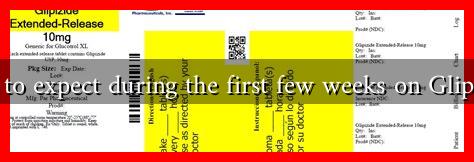-
Table of Contents
What to Expect During the First Few Weeks on Glipizide
Glipizide is an oral medication commonly prescribed for managing type 2 diabetes. As a member of the sulfonylurea class of drugs, it works by stimulating the pancreas to release more insulin, thereby lowering blood sugar levels. If you have recently been prescribed Glipizide, understanding what to expect during the initial weeks can help you manage your diabetes more effectively and minimize potential side effects.
Understanding Glipizide: Mechanism and Benefits
Before diving into the first few weeks of treatment, it’s essential to understand how Glipizide functions. By increasing insulin secretion, Glipizide helps to:
- Lower blood glucose levels after meals.
- Improve overall glycemic control.
- Reduce the risk of diabetes-related complications.
According to the American Diabetes Association, effective management of blood sugar levels can significantly reduce the risk of complications such as neuropathy, retinopathy, and cardiovascular diseases.
Initial Adjustments: What to Expect
When starting Glipizide, your body will undergo several adjustments. Here’s what you can expect during the first few weeks:
- Blood Sugar Monitoring: Frequent monitoring of blood glucose levels is crucial. You may notice fluctuations as your body adjusts to the medication. Keeping a log can help you and your healthcare provider make necessary adjustments.
- Dosage Adjustments: Your doctor may start you on a low dose, gradually increasing it based on your blood sugar readings and tolerance. This titration process is essential to minimize side effects.
- Side Effects: Some individuals may experience side effects such as:
- Nausea
- Dizziness
- Headaches
- Weight gain
- Hypoglycemia Risk: One of the most significant risks associated with Glipizide is hypoglycemia (low blood sugar). Symptoms may include sweating, shaking, confusion, and irritability. It’s vital to recognize these symptoms early and treat them promptly.
Diet and Lifestyle Considerations
Alongside medication, diet and lifestyle play a crucial role in managing diabetes. Here are some recommendations:
- Balanced Diet: Focus on a diet rich in whole grains, lean proteins, healthy fats, and plenty of fruits and vegetables. The American Diabetes Association recommends a carbohydrate-controlled diet to help manage blood sugar levels.
- Regular Exercise: Incorporating physical activity into your routine can enhance insulin sensitivity and help control weight. Aim for at least 150 minutes of moderate aerobic activity each week.
- Stay Hydrated: Drinking plenty of water can help maintain optimal hydration and support overall health.
Case Studies and Statistics
Research indicates that Glipizide can be effective in controlling blood sugar levels. A study published in the journal Diabetes Care found that patients using Glipizide experienced a significant reduction in HbA1c levels, a key indicator of long-term blood sugar control. In this study, participants showed an average decrease of 1.5% in HbA1c after 24 weeks of treatment.
Moreover, a case study involving a 55-year-old male patient with type 2 diabetes demonstrated that after starting Glipizide, his fasting blood glucose levels dropped from 180 mg/dL to 120 mg/dL within three weeks, showcasing the medication’s effectiveness when combined with lifestyle changes.
Consulting Your Healthcare Provider
Regular communication with your healthcare provider is essential during the initial weeks of Glipizide treatment. They can help you navigate any side effects, adjust dosages, and provide guidance on lifestyle modifications. Don’t hesitate to reach out if you experience severe side effects or if your blood sugar levels remain uncontrolled.
Conclusion
Starting Glipizide can be a significant step in managing type 2 diabetes. While the first few weeks may come with challenges such as side effects and blood sugar fluctuations, understanding what to expect can empower you to take control of your health. By monitoring your blood sugar, adhering to a balanced diet, and maintaining open communication with your healthcare provider, you can maximize the benefits of Glipizide and work towards achieving better glycemic control.
In summary, patience and diligence are key during this adjustment period. With the right approach, Glipizide can be an effective tool in your diabetes management arsenal.

